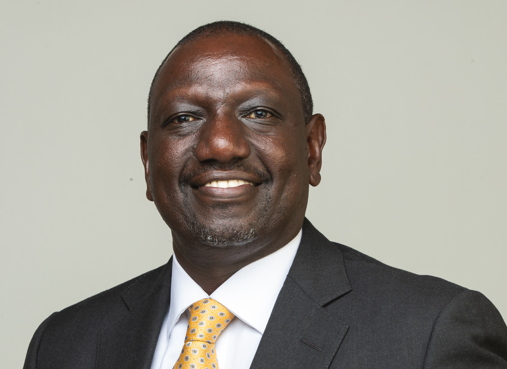Deputy President, Rigathi Gachagua launched the country’s first semi-conductor production unit, as the country seeks to strengthen its position as a manufacturing hub in the East Africa region.
The Sh25 million system christened Ol Borana, will see Kenya become the first African country to produce semiconductor microchips, which are the driving blocks of every electronic device.
The semiconductor production system, which was termed as the most advanced in Africa, will be responsible for the manufacture of silicon wafers, nanotechnology material which handle huge amounts of data and the production of semiconductor systems.
During the launch of the production unit at the Dedan Kimathi University of Technology (DEKUT) in Nyeri County, the DP hailed the innovation as a demonstration of the country’s potential to lead the continent in matters of technology and sustainable development.
He said that innovation would not only respond to the demands in the market, but it would also help the Kenya Kwanza administration leverage on science and technology as the driving force towards achieving the Kenya Kwanza Plan.
“With the manufacturing of semiconductors and other forms of innovations in Kenya, we have disrupted the status quo with the bottom-up flow of technology. We are proving to the world that we are not only consumers but also producers of top-notch technology,” said the DP.
In his remarks, the US Embassy Charge’ d’affaires Marc Dillard termed the launch as a major milestone towards capping the over dependence by manufacturers on East-Asia for supply microchips.
He noted that unit would also help solve the semiconductor supply chain strains exposed by the Covid-19 pandemic, which have pushed manufacturing giants to champion for the diversification of the global supply chain of microchips.
“There has been an urgent need to diversify and strengthen our global supply particularly in critical industries like semiconductors. We are witnessing the broadening of the supply chain by creation and increasing of supply in Kenya to move away from reliance on East Asia which accounts for more than 90 per cent in recent years so moving away from that dependency and creating these opportunities is something that we celebrate,” said Dillard.
Also present during the launch of the system were DEKUT Vice-Chancellor Prof Patrick Kioni, Nyeri Governor Mutahi Kahiga, Education Cabinet Secretary Ezekiel Machogu and his Information, Communications and the Digital Economy counterpart, Eliud Owalo.
On his part, Owalo said his ministry would soon be putting in place an enabling legal and policy framework which will facilitate sustainable economic development while utilizing technology.
The Information CS said that the ministry was working out an elaborate private/public partnership plan which will facilitate the uptake of the technological infrastructure that will be used to spur e-commerce.
Owalo said that should all go as planned; the strategy would be responsible for the creation of up to 3 million digital job opportunities by 2025.
“We are putting in place deliberate efforts to ensure that we move away from the traditional approach of doing business to e-commerce. We envisage that we should be able to leverage on competencies within the Kenyan public so that we don’t become perpetual importers of ICT technologies but we become deliberate manufacturers of both ICT software and hardware,” he stated.
By Wangari Mwangi and Kiama Wamutitu




